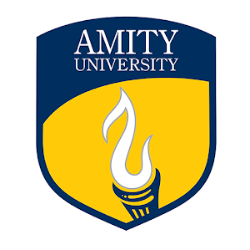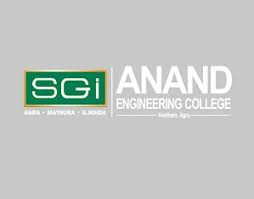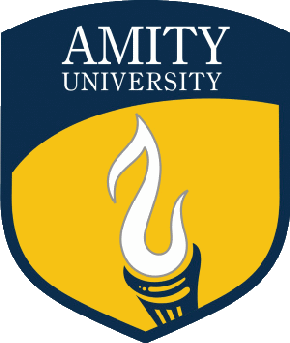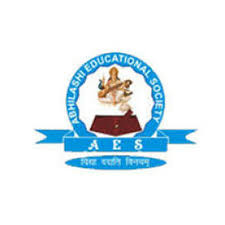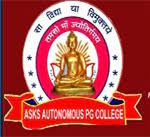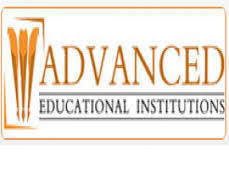Teachers, educational administrators, curriculum creators, and education policy analysts are among the professions that M. Ed. graduates can enter. Additionally, a B.Ed., a two-year program that prepares students for a career in school teaching, is a prerequisite for M. Ed. The National Council of Higher Education (NCHE) is the regulating authority that oversees the M. Ed program.
Candidates must have passed the Class 10+2 exam from a recognised board with Mathematics, Physics, and Chemistry as core subjects and a minimum of 50% aggregate in the courses above to be eligible for M. Ed. admissions. CUET, RIE CEE, PTET, DUET, IGNOU M Ed admission, and other tests are among the most popular M. Ed. programs admission exams. In addition, Banaras Hindu University, ‘Calcutta University’, ‘Amity University’, ‘GGSIPU’, and other prestigious universities offer M Ed programs.
M.Ed. course eligibility criteria:
The applicant must fulfil the following specified M.Ed. eligibility requirements to pursue an M.Ed.:
- Qualification test: The applicant must have graduated from an accredited program with a B.Ed.
- Minimum score: The qualifying exam has several possible minimum scores. For example, certain institutions may require a cumulative grade of 50%, but in other circumstances, it may even reach 60%.
Since different colleges have different standards, especially concerning minimum grades, applicants should check with the college or exam they intend to take before applying for an M.Ed.
Admissions for M.Ed.
Entry exam route: Many institutions offering M.Ed. programs use entrance exam scores, such as the DUET for Delhi University and the BHU PET for Banaras Hindu University, for admissions. Based on entrance exam results, a merit list for access will be created, and candidates will be shortlisted for counselling and seat assignments.
Direct admission path: In this scenario, there is no entrance exam, and many universities may admit students based on their performance in qualifying examinations.
Specialisations in M.Ed.
A master's degree specialisation course involves in-depth research in a specific subject within that profession. In addition to covering the fundamentals of the M.Ed program, candidates who complete an MEd in Educational Technology course will also learn about the tools and abilities needed to conduct online and digital learning sessions for schools and commercial entities. Additionally, this specialised program teaches how to design communication and collaborative learning spaces.
The following is a list of some of the most well-liked M.Ed. specialisations:
- M.Ed. in Women Studies
- M.Ed. in Educational Technology
- M.Ed. in Guidance and Counselling
- M.Ed. in Rural Education
- M.Ed. in Yoga Education
- M.Ed. in Environment Education
- M.Ed. in Language Education.
Institutions approved by the National Council of Teacher Education (NCTE), New Delhi, provide M.Ed. programmes. Any college that the NCTE disapproves is not permitted to teach the course, and as a result, any certifications they may have granted are void.
M.Ed. types
The M.Ed. program can be completed remotely or regularly. Distance learning is offered by KSOU and IGNOU—exam-taking colleges such as DUET, BHU PET, and JUET offer regular M.Ed. courses.
Although there are one-year M.Ed. programs available, the course typically lasts two years.
Benefits of an M.Ed. Program
Enhancement of teaching abilities: Earning a master's degree in education aids in improving a candidate's teaching abilities. Pursuing an M.Ed. can help someone learn and become a more skilled teacher.
More significant opportunities: Those who pursue an M.Ed. are presented with more favourable job options. A better-paying position may also become available to the candidate, depending on their area of specialization.
Greater scope: Those who pursue an M.Ed. also have the chance to work in administrative positions. Upon completion of their M.Ed., candidates are not limited to a career in teaching; they can also choose to work in administration.
M.Ed. Syllabus
|
M.Ed. Semester-1 |
M.Ed. Semester-2 |
M.Ed. Semester-3 |
M.Ed. Semester-4 |
|
Educational Psychology |
Philosophical Foundations of Education |
Specialisation Courses- I (any one of the following) Elementary Education in India: Administration and Management Aspects, Planning & Management at Secondary & Senior Secondary level. |
Compulsory Course
Advance Curriculum Theory Environmental Education |
|
Historical and Political Perspectives of Education
|
Sociology of Education |
Specialisation Courses- II (any one of the following) Issues & Curricular Concerns at Elementary level OR Issues & Curricular Concerns at Secondary & Senior Secondary level |
Specialisation –III (any one of the following ) Policy, Planning and Financing of Education Education Policy, Planning and Financing of Education at Secondary and Senior Secondary level Issues, Planning and Policies of Elementary Education |
|
Educational Studies |
Curriculum Studies in Education |
Compulsory Courses: Advance Research Methods In- Service Teacher Education in India
Internship in School – Practical Course Dissertation – Practical Course Academic Writing – Practical Course |
Education Management and Planning at Secondary level
Towards Academic Leadership at Secondary School level, Information and Communication Technology in Education, Inclusive Education, Peace Education, Educational Technology, Issues and Challenges in secondary Education, Contemporary Concerns in Elementary Education, Educational, Vocational Guidance and Counselling, Educational Administration, Supporting Education of students from Disabilities and Disadvantaged Groups, Value Education, Educational Evaluation, Science Education, Language Education, Social Science Education, Business Education Gender Studies |
|
Research Methodology in Education |
Teacher Education |
- |
Dissertation – Practical Work |
|
Human Rights and Education |
Dissertation – Practical Course |
- |
Creating an Inclusive School |
|
Communication & Expository Writing |
Internship in TEI – Practical Course |
- |
Health, yoga and physical education |
|
Practical Course |
- |
- |
Engagement with the Field: Tasks and Assignments |
|
Self-Development – Practical Course |
- |
Careers Opportunities after M.Ed.
The immediate job role that comes to our minds when we hear M.Ed. is that of an educator or researcher. But take a closer look, and you will find an M.Ed. degree holder today who works as an Instructional Designer or a Senior Business Analyst. This shows that the course and the curriculum have evolved to become genuinely contemporary.
Career roles:
- School Teacher
- Researcher
- Private Tutor
- Home Tutor
- Education Consultant
- Education Counsellor
- Physical Education Teacher
- Online Tutor
- Vice Principal
- Maths Teacher
- Principal
- Administrative Assistant
- Educational Media and Technology Specialist
- Child Care Director
- Educational Policy Developer
- Instructional Designer
- Senior Business Analysts
Who seeks out M.Ed. candidates?
The majority of M.Ed. graduates' jobs were in private and public schools. However, the nature of recruiters has also evolved in recent years due to the diversification of employment roles. For instance, M.Ed. graduates are now employed by education, coaching, and counselling organisations such as TIME, FIITJEE, and Edu Comp. All of that, however, is negligible when you consider that M.Ed. holders are in high demand at tech firms like NIIT.
M.Ed.'s Scope
After completing an M.Ed. degree, an individual may pursue doctoral studies, research, or work in education. Since the M.Ed. programme strongly emphasises communication skills, students usually graduate with a good understanding of expressing themselves clearly and persuasively. Candidates may find this helpful if they wish to pursue speaking positions.
FAQs
1. What is M.Ed.?
The acronym for Master of Education is M.Ed. Following the completion of a B.Ed. or a degree equivalent, the course may be followed.
2. How long does the M.Ed. program last?
While two years (four semesters) is the standard, many well-known institutions—including BHU—offer one-year (two semesters) M.Ed. programs.
3. What kinds of M.Ed. courses are there?
There are two options for completing the M.Ed. course: regular or distant. IGNOU offers distance learning, and universities like DU provide traditional M.Ed. programs.
4. What are the different specialisations available in an M.Ed. program?
Numerous fields, including educational technology, guidance and counselling, special education, women's studies, rural education, and yoga education, offer M.Ed. specializations.
5. How does one apply for admission to an M.Ed. program?
Admission is determined by the results of the qualifying exam or the entrance exam. Exams like the DUET, AMU Entrance Test, BHU PET, etc. are often taken.

